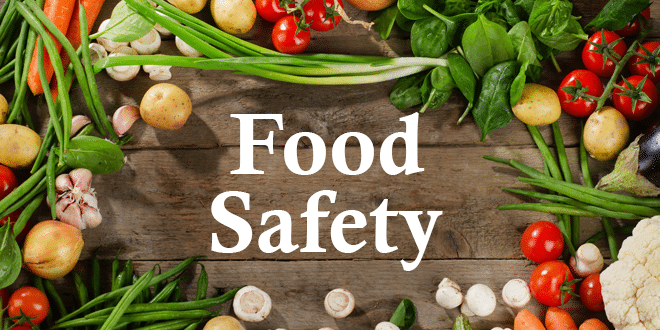10 Things You Should Know About Food Safety


In the recent years, the contribution of people hospitalized due to food-borne diseases have spiked and hence, food safety has become a more concerning issue at the present moment for the safety of you and your family.
Here are 10 things that you should know about food safety that can protect you and your family from serious life-threatening diseases.
You don’t need a doctor or a health advisor to tell you how important handwashing really proves to be. After every outdoor activity, it is absolutely compulsory to wash your hand properly. This removes most of the germs and dust particles and prevents you from ingesting it while eating food.
Fruits and vegetables, especially the cut ones need to be preserved if they are to be consumed later. These foodstuffs are vulnerable to attack by microorganisms due to the sugar and moisture content present in them. Another important thing is to wash the fruits and vegetables properly with water every time they are taken out of the refrigerator.
Although these are given by the manufacturer or the packaging company to indicate the freshness of the foodstuff and the safety of consumption after a particular period of time, these may often be manipulated to expand business profits. It is essential that you choose these packaged foodstuffs properly and check the dates and condition of items minutely before serving them.
The vacuum bottles have become increasingly popular due to their capability of storing tea and water hot for a longer period of time. However, the material that these bottles are made up of are not fully resistant to corrosion and can even react with the hot fluid in the bottle to give rise to toxic compounds.
Traces of harmful metals such as antimony, arsenic, and lead can be found in these bottles that can cause serious food poisoning in the long run. This is especially true for cheap thermos flasks and vacuum bottles made of low-grade materials.
Most people use the color of the meat to judge whether the meat is well-cooked or not but this may sometimes lead to an opposite conclusion. The best way is to check the temperature before starting to eat. This is generally dependent on the cook and his concern for his customers.
This may be unbelievable as most of us consume flour on a daily basis. But the concern is not with the cooked or baked flour that has the bacteria and microorganisms destroyed during the process but with the flour that is used in raw cookie dough. The most dangerous thing about this is the presence of the deadly E. coli bacteria.
It is a bad habit to put frozen foodstuff in slow-cookers as this provides ideal conditions and exactly the right amount of time for the bacteria to attack and contaminate the food. It is best to avoid this method and wait for the temperature of the food to normalize a little bit before cooking.
The “2-hour” rule of food safety states that any perishable foodstuff left in the open for more than 2 hours may become unfit for consumption. The “1-hour” rule works just the same but applies for temperatures of more than 90 degrees. These conditions make the foodstuff vulnerable to attack by microorganisms.
The Temperature Danger Zone (TDZ) is an important concept in food safety that tells that a temperature between 4 and 60 degrees centigrade is ideal for bacterial growth on foodstuff. Hence, whenever you are storing food for the long term make sure it is out of the TDZ.
You must always use clean knives and utensils and dispose off any material in the kitchen that has developed rust on it. Harmful metals are formed due to corrosion of metals and these must be stopped from entering the body while eating.
You need to keep these food safety tips in mind both inside your house and outdoors, too. Also, you must teach your children the basic rules about food safety and always eat healthy and fresh food.
